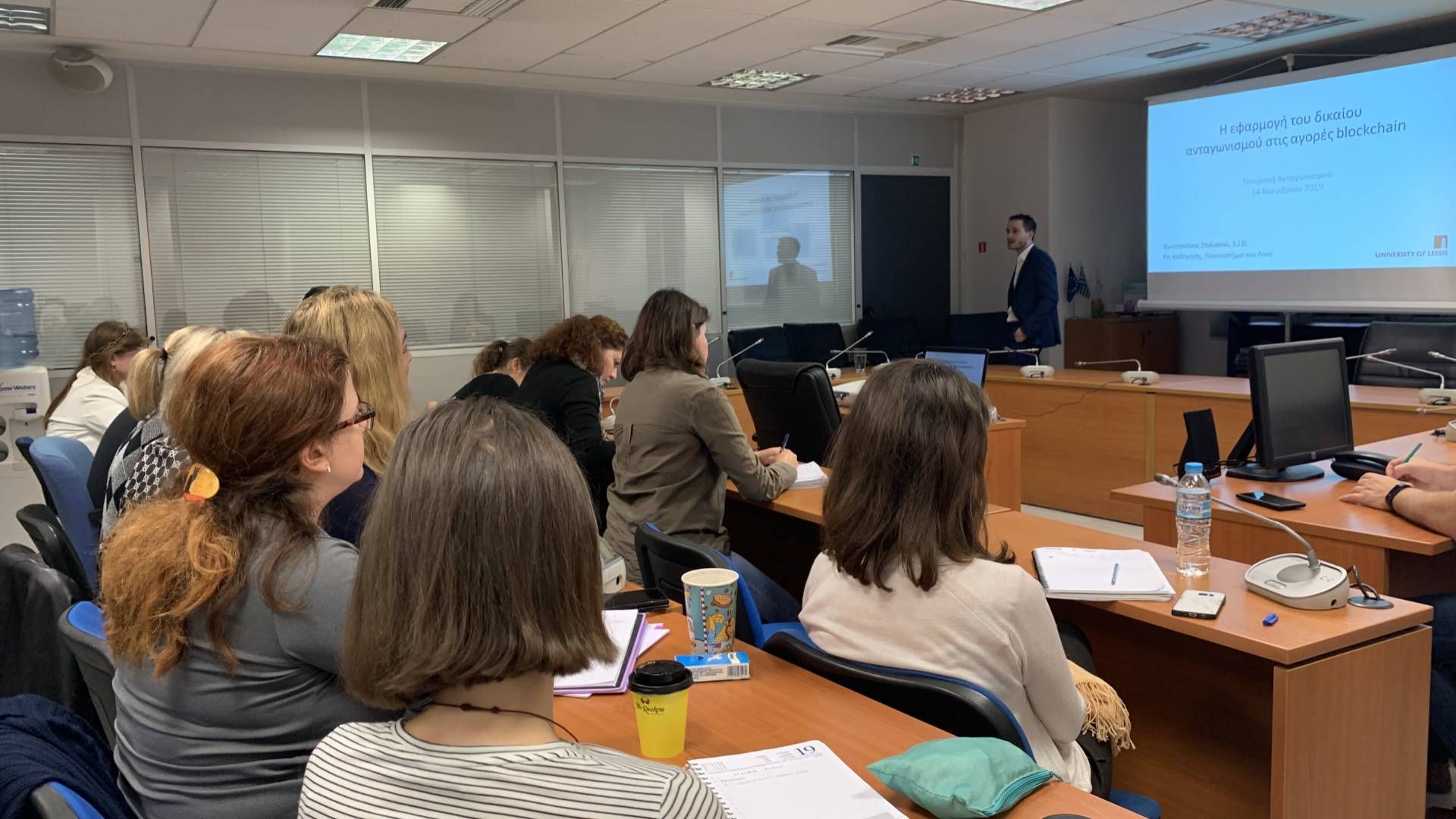The presentation covered in a very detailed and intelligible manner one of the most complicated issues that have recently arisen, albeit so far only theoretically, in the application of competition law.
The main purpose of the presentation was to explain how blockchain markets work and to present two recent cases pending before US courts. The first case (United American Corp. v. Bitmain) concerns an alleged cartel. United Corp provides blockchain goods and services based on the Bitcoin Cash cryptocurrency. Bitcoin Cash was split in November 2018 into two separate cryptocurrencies, the Bitcoin Cash ABC and Bitcoin SV. United Corp claims that a group of investors, verifiers, traders and software developers had come to an agreement to ensure that as many verifiers as possible would only verify Bitcoin ABC and not Bitcoin SV transactions, and therefore, the agreement is allegedly responsible for the financial damage suffered by UnitedCorp, since it disrupted normal market conditions,.
The second case (Leibowitz v. Digfinex) concerns a possible abuse of dominant position. Digfinex is active in the blockchain space and is the parent company of Tether Holdings Limited, which issues the Tether cryptocurrency at a constant exchange rate, where 1 USDT = $ 1 (stablecoin), and guarantees that each Tether in circulation is backed by an equivalent dollar amount. The plaintiffs claim that Tether Holdings Limited issued Tethers without the equivalent dollar backing, which is why it was able to flood the market with Tethers, which in turn created foreclosure effects suffered by other competing stablecoins. They also claim that the oversupply of Tethers has artificially raised the price of Bitcoin and other cryptocurrencies, thereby harming consumers.
As these cases are still pending and concern unchartered territories, their presentation was followed by a very constructive discussion during which participants posed several questions.
